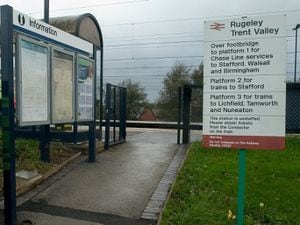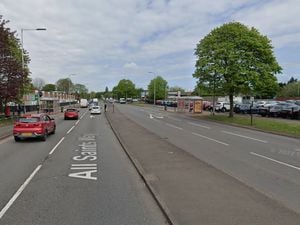Dozens killed on region's roads despite reduced road usage
Dozens of people died and hundreds were seriously injured in road traffic accidents last year, new figures show.

With reduced road usage during the coronavirus pandemic, fatal and serious road traffic accidents dropped by more than a fifth across the country.
But 49 people still lost their lives due to collisions around West Midlands in 2020, while the figure was 14 in Staffordshire.
In the West Midlands, less traffic contributed to an 18 per cent decline in the number of people killed or seriously hurt, and an overall drop of 28 per cent in the total number of casualties, from 7,325 in 2019 to 5,254.
Department for Transport figures show at least 735 suffered serious, potentially life-changing injuries. And the number of people left with slight injuries is likely to be higher than the 4,470 recorded, as not all crashes or collisions are reported.
In Staffordshire, less traffic contributed to a 40 per cent decline in the number of people killed or seriously hurt, and an overall drop of 36 per cent in the total number of casualties, from 1,786 to 1,149.
The figures show at least 150 suffered serious, potentially life-changing injuries – and the number of people left with slight injuries is likely to be higher than the 985 recorded.
Sergeant Jon Butler, who leads the Road Harm Prevention Team at West Midlands Police, said: "Dangerous and illegal driving can have serious or even fatal consequences.
"We know the long-lasting impact it can have on communities so we’ve invested in extra officers to enable us to increase our activities to maintain the safety of vulnerable road users and pedestrians.
"Even during the unprecedented last year we’ve continued to see a regular volume of road users.
"Hopefully we’ll continue to see a cut in collisions over the coming years as a result of the ongoing efforts between us and our partners."
The AA say the Government must do more to eradicate road deaths completely by the end of the decade while road safety charity Brake say it is unacceptable to see lives lost or changed forever as a result of preventable crashes.
Road traffic across Britain dropped by over a fifth in 2020 compared to the previous year with the overall number of casualties plunging by a quarter in that time.
But cyclist deaths rose, from 100 in 2019 to 140 last year.
A spokesman for Brake said the national decrease in deaths and serious injuries represented a step in the right direction and demonstrated the possibility of reducing casualties.
He called for better investment in vehicle safety and infrastructure, more segregated spaces for cyclists and pedestrians and appropriate speed limits, adding: "Every death on our roads is a tragedy for the victims’ loved ones, while injuries can have devastating consequences on an individual’s life.
"We need a concerted focus on reducing road deaths and catastrophic injuries. This requires ambitious targets to end the carnage on our roads."
AA president Edmund King said 2020's reduction in road traffic casualties should not become a "one-off" as he called for the Government to introduce road safety targets.
He said: “Regardless of how we use the roads, we all have a responsibility to one another to ensure people can travel safely.”
“For many years the Government has not set any road safety targets.
"If we are serious about a vision zero for road deaths the Government should urgently re-introduce targets so we can work hard to end road deaths as quickly as possible.”
A Department for Transport spokesman said: “While we have some of the safest roads in the world, this Government will continue to work tirelessly to ensure they are made even safer.
“Our targeted THINK! Campaign continues to educate road-users, and as part of our 2019 Road Safety Statement we committed to a two-year action plan to help promote safer driving on our roads.”





